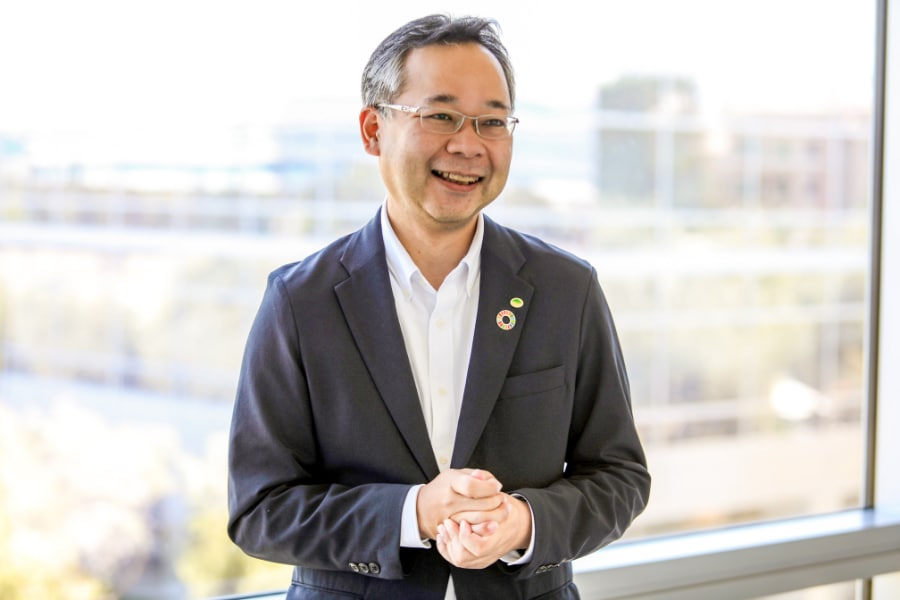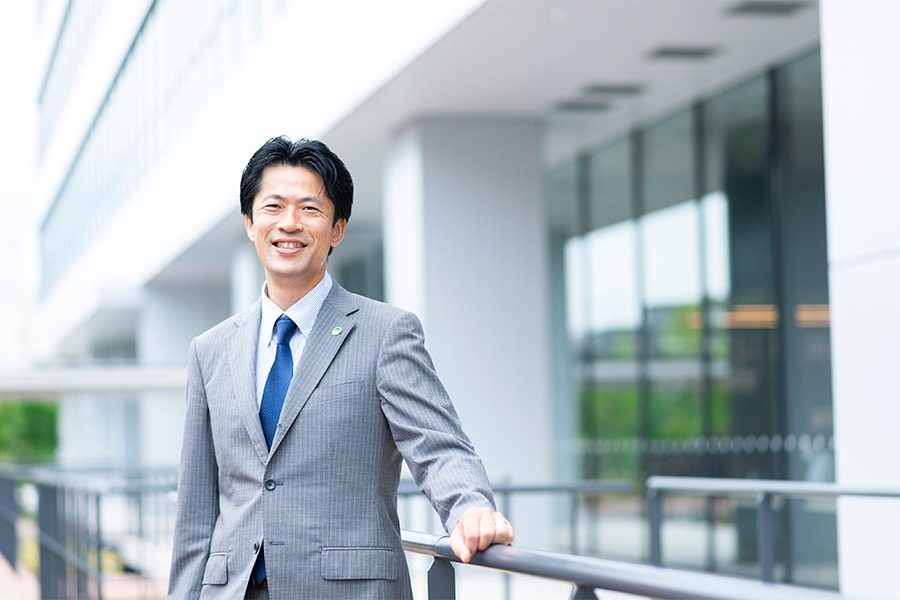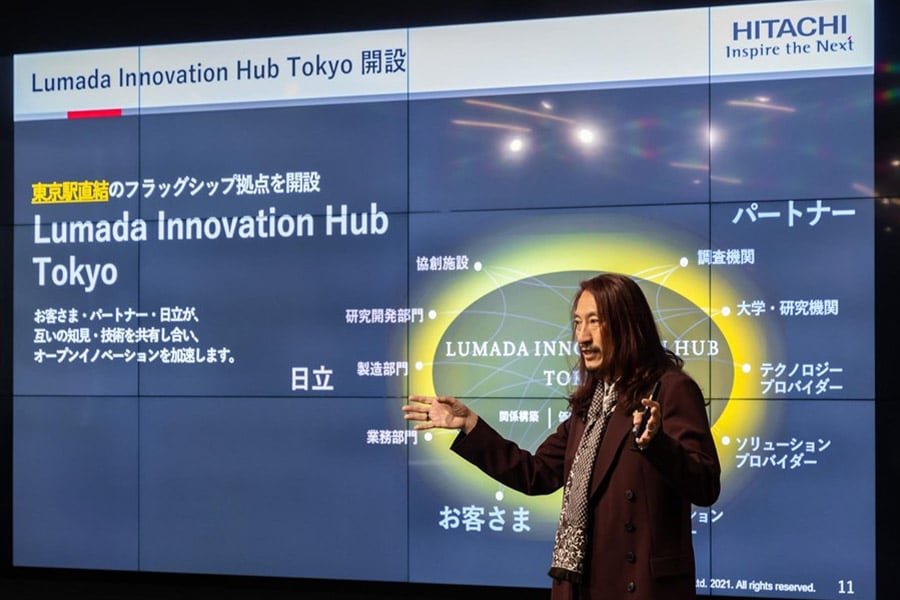After working for a life insurance company's tech subsidiary, he started working at Microsoft in 1997, where he was responsible for disseminating information on the latest IT technologies. In 2006, he moved into management and was responsible for people management. He is known as a leading expert in presentations, and in October 2019, he founded Ensow and acts as its CEO. In February 2021, he was appointed Lumada Innovation Evangelist.
What is Lumada That Promotes Corporate digital transformation?
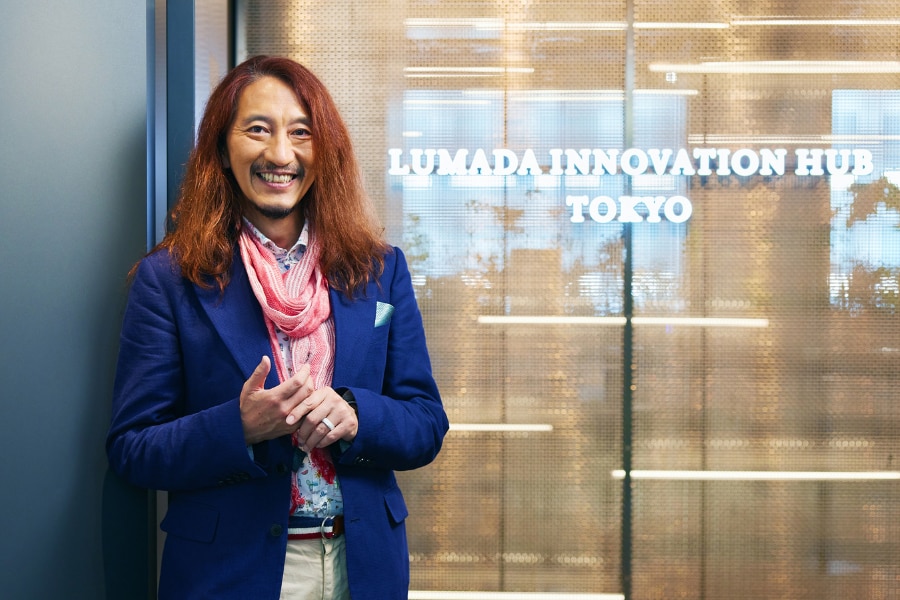
"Lumada" is the completely new word which is combined illuminate with data. It is a generic term for solutions, services, and technology systems that speed up digital transformation (DX) through the use of cutting-edge technologies.
In April 2022, Keiji Kojima, president and CEO of Hitachi, Ltd. expressed his enthusiasm at the mid-term management plan briefing, saying, "The core of our growth strategy is Lumada, and we will achieve almost double the sales revenue of the Lumada business during the 2024 Mid-term Management Plan period.”
But what exactly is Lumada, which is positioned as a pillar of the Hitachi Group's growth strategy, and what social issues will it solve?
Lumada Innovation Evangelist Mr. Madoka Sawa gives back answers about it.
Lumada: A Banner of the Hitachi Group
--"Lumada seems difficult to understand," some people say. Could you please explain the concept of Lumada in your own words?
Madoka Sawa: Lumada does not refer to a specific product area or service but rather is a banner or keyword for the entire Hitachi Group, which has about 370,000 employees, to work in the same direction. Therefore, you may have the impression that it is a somewhat abstract concept.
The fundamental concept of Lumada is that, "we dedicate to help clients, solve their business challenges, or grow their business through the new insight from the data." As you know, almost all growing companies in the world today generate significant revenue by leveraging data.

--GAFA, an acronym for "Google, Apple, Facebook, and Amazon, are enormous tech companies from the U.S. that do exactly that.
Sawa: GAFA leverages data collected by their own businesses for advertising, product sales, device development, social media, and content businesses such as video and music. However, the center area of that utilization remains in their field of expertise.
Hitachi, on the other hand, is involved in a wide range of products, from small home appliances, such as nose hair cutters, to power plants and other such huge plants. Furthermore, while being an IT company, Hitachi also provides consulting services and collaborates with companies in all sorts of industries, including agriculture, forestry, and fisheries, not to mention the service and industrial sectors. In other words, Hitachi has an overwhelmingly large area where data can be utilized in the real world.
Our advantages are wide range of the business areas, and knowledges and technologies of utilization on data. All of our employees take a data scientist approach to our business based on the idea of trusting data and leveraging it to solve our customers' problems. That is the concept of Lumada.
Specific Examples of Lumada
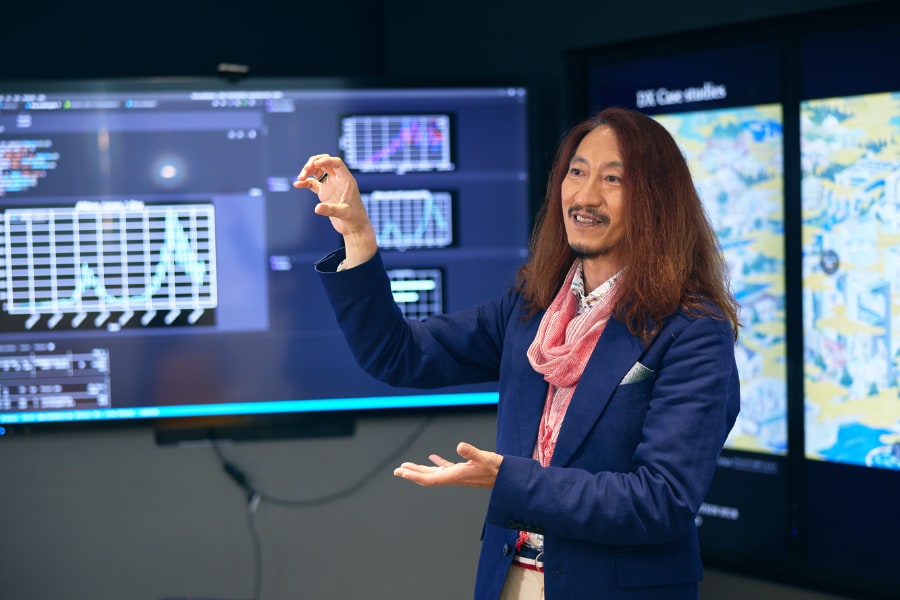
--"Trust on data" is the fundamental notion for Lumada. What sort of project are there based on the Lumada's concept?
Sawa: A specific example of Lumada that is easy to understand is a Water Leakage Detection solution. Water pipes have been deteriorated, and caused water suspension and road buried, as they constructed in the high economic growth period of 1960s-70s. According to the data of Japan's Ministry of Health, Labour and Welfare in 2019, the number of water pipe incidents has reached 20,000 per year.
Amazingly, the detection of leaks in water pipes up until now has generally been done by skilled surveyors using an instrument called a "listening stick" to recognize the sound. It is, however, becoming a social issue that these skilled workers have been decreasing and it caused the deterioration of water pipes.
--It takes a lot of times and effort, doesn't it?
Sawa: Exactly, therefore, we come up with the idea based on the Lumada's concept, that Hitachi's original "ultra sensitive vibration sensor" can solve that issue.
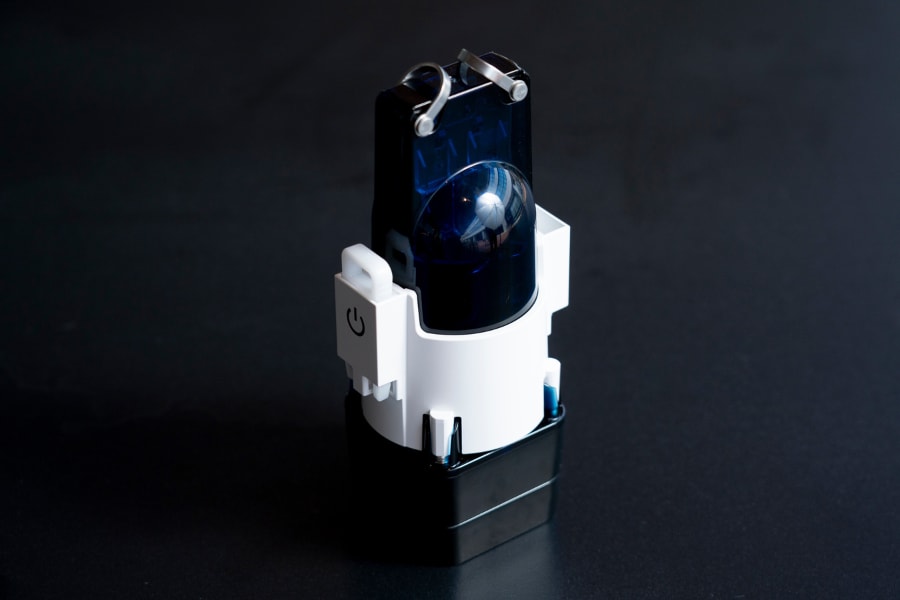
The sensor detects vibrations caused by leaks in water pipes, converts them into data, and uses a proprietary analysis algorithm to identify the leak. In the future, in addition to data collected in the cloud, we plan to analyze data on the type, diameter, and age of water pipes to create a system that can detect leak location.
--Do you have any other case studies involving Lumada?
Sawa: Another example is one that began in March 2022 that leverages human behavior; that is, image data analysis. At many manufacturing sites, manual labor is still essential, but sometimes inexperience or long term work hours causes human errors. We examined what kind of data we should collect to solve this problem, we reached skeletal information, such as body orientation and hand movements of skilled workers.
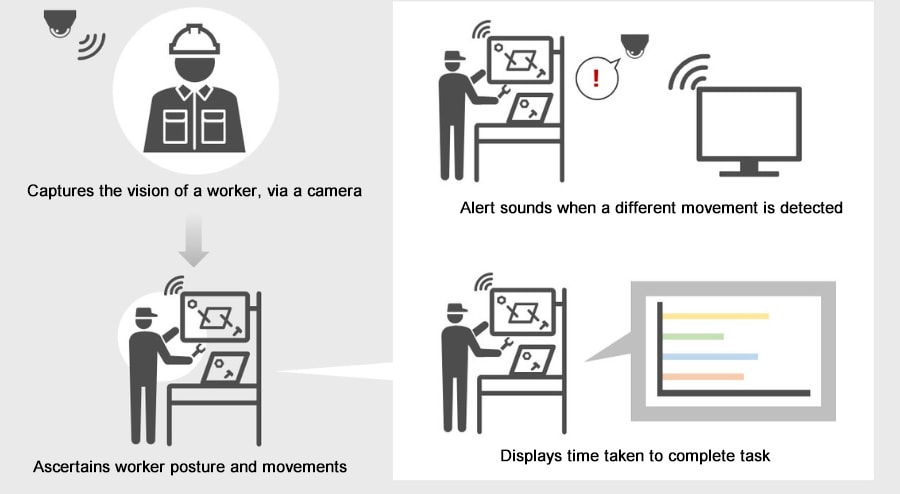
By capturing the posture and movements of workers with a camera and analyzing the images with AI, skeletal movements are converted into data. For example, when tightening a screw, how much torque is applied in how many seconds? Even experienced workers are now able to convert data for tasks that are difficult to explain in words.
Then, when a worker makes a movement that differs from that of a skilled worker, causing alert sounds, and the work can be improved. This technology has already been adopted by large companies and has been effective at improving quality and reducing work-related injuries.
Brightening the World with Lumada

--What do you envision for the future of Lumada?
Sawa: Lumada is a concept that embodies the potential of the Hitachi Group. If the Lumada initiatives to maximize the use of data spread to a wide range of industries, it could become a role model for the development of Japan as a whole. The Hitachi Group is one of the largest companies in Japan, so this is not a pipe dream.
We use cutting-edge technology to collect reliable data, and then use that data to increase happiness in society. Hitachi has the keyword, "Powering Good," and in that vein, I believe that Hitachi's reason for existence is to brighten the world. Lumada is the most-effective method to fulfill this role.
Madoka Sawa’s Profile

